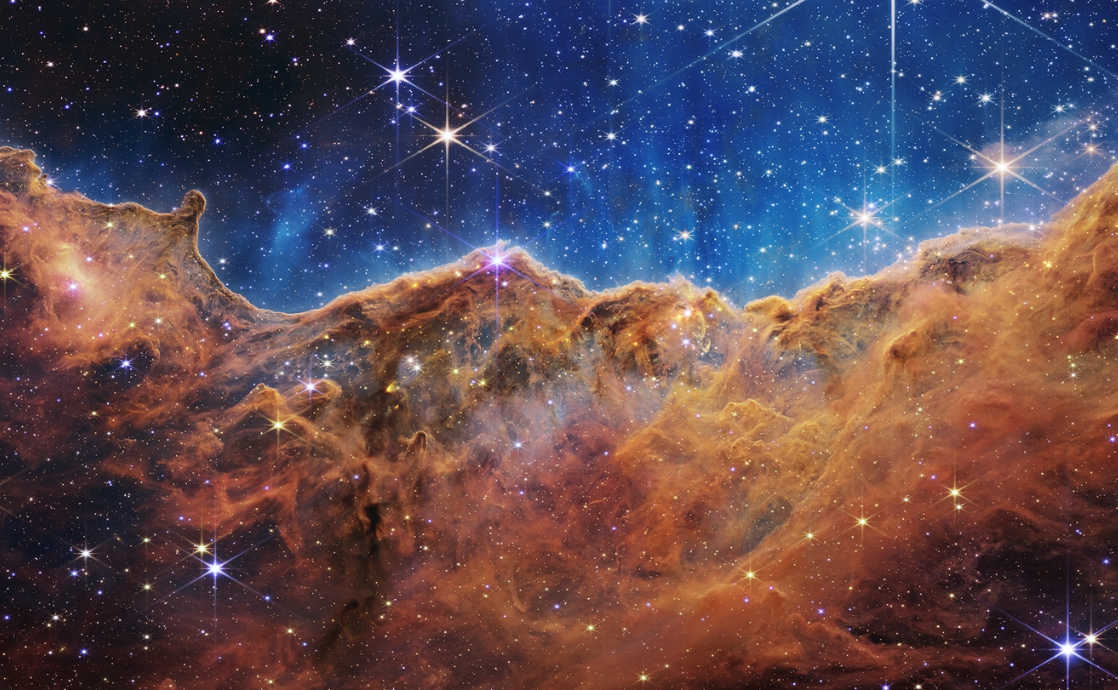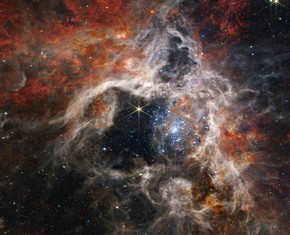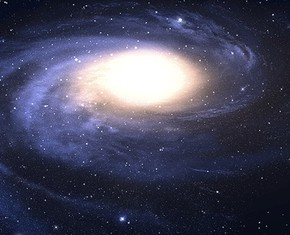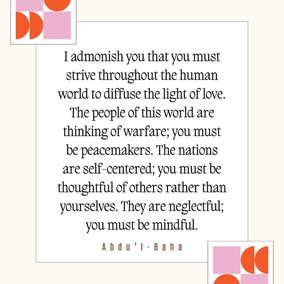The views expressed in our content reflect individual perspectives and do not represent the authoritative views of the Baha'i Faith.
Here’s probably the biggest and most important question science has ever tried to answer: Does the universe have order, or is it essentially chaotic?
We humans have pondered that one since we lived in caves.
Our ancient human societies often tried to explain what they perceived as random or unknown or chaotic – earthquakes, eclipses, droughts, fires, floods – as the work of angry deities, supernatural powers they couldn’t conceive of or understand. But modern science, true to its very nature, has attempted to demolish those superstitions by searching for rules, for laws, for evidences of consistency and cohesion and order in the universe.
RELATED: In Our Fine-Tuned Universe, Does Life Exist on Other Planets?
This means the underlying laws that govern the physical universe – gravity, thermodynamics, evolution, and so on – all represent scientific attempts to understand our vast and complex existence.
Today, the overwhelming majority of scientists agree with Carl Sagan’s succinct summary: “The order of the universe is not an assumption: it is an observed fact.” That’s why we call our universe the cosmos, a Greek word that means order, and implies the deep interconnectedness of all things. In fact, Sagan said he used the title Cosmos for his book and television series because “It conveys awe for the intricate and subtle way in which the universe is put together.”
So if the universe is ordered – put together in intricate and subtle ways – who or what ordered it? Does the presence of order imply an orderer? Philosophers, scientists, and theologians all say that question has two possible answers: either a Creator, or nothing.
Some believe that nothing ordered the universe – that it simply developed by itself in a naturally-ordered state, a product of time and chance and nature’s whim. Others say that’s completely impossible – pointing out that order and organization never comes from nothing; instead, it always comes from an organizer, a higher intelligence and a creative force.
The answers to this basic question, many people have come to understand in their search for the meaning of life, represents the inner core of all faith, all belief, and all philosophy. The way you answer it for yourself will help determine how and why you live your life and understand your role among all other lives.
The Baha’i teachings point out that an ordered universe requires a transcendent foundation; a greater force outside space and time; an ultimate source and designer of the magnificent web of life. In fact, the Baha’i writings repeatedly stress that the universe itself provides the evidence, confirming the existence of a Universal Creator:
Likewise, look into this endless universe: a universal power inevitably existeth, which encompasseth all, directing and regulating all the parts of this infinite creation; and were it not for this Director, this Co-ordinator, the universe would be flawed and deficient. It would be even as a madman; whereas ye can see that this endless creation carrieth out its functions in perfect order, every separate part of it performing its own task with complete reliability, nor is there any flaw to be found in all its workings. Thus it is clear that a Universal Power existeth, directing and regulating this infinite universe. Every rational mind can grasp this fact.
This scientifically-sound, logical, and rational argument for the existence of God says that our ordered universe came from an intelligent, bountiful, and merciful Supreme Being. If we believe in the universal law of cause and effect, as Aristotle pointed out, then we must trace those effects back to what he called a Primal Cause.
RELATED: Is the Universe Consciously “Fine-Tuned” So Life Can Exist?
Similarly, Albert Einstein famously said, in response to a question about whether he believed in a Creator, “When I see a piece of toast, I know that somewhere there is a toaster.”
That deceptively simple formulation hides a much deeper truth: that nothing comes into being without a motive force to create it. Everything we see, touch, and encounter has that same provenance and patrimony. All existing things owe their reality to a wellspring of energy that originally brought them into existence. Every life form, every song, every table, every computer, every car, every building and every book trace their being back to a source of creativity and intelligence that first imagined and then conceived and finally made them.
Abdu’l-Baha, in a tablet he wrote to the distinguished Swiss scientist Auguste Forel, put it this way:
As we, however, reflect with broad minds upon this infinite universe, we observe that motion without a motive force, and an effect without a cause are both impossible; that every being hath come to exist under numerous influences and continually undergoeth reaction. These influences, too, are formed under the action of still other influences. For instance, plants grow and flourish through the outpourings of vernal showers, whilst the cloud itself is formed under various other agencies and these agencies in their turn are reacted upon by still other agencies. For example, plants and animals grow and develop under the influence of what the philosophers of our day designate as hydrogen and oxygen and are reacted upon by the effects of these two elements; and these in turn are formed under still other influences. The same can be said of other beings whether they affect other things or be affected. Such process of causation goes on, and to maintain that this process goes on indefinitely is manifestly absurd. Thus such a chain of causation must of necessity lead eventually to Him who is the Ever-Living, the All-Powerful, who is Self-Dependent and the Ultimate Cause. This Universal Reality cannot be sensed, it cannot be seen. It must be so of necessity, for it is All-Embracing, not circumscribed, and such attributes qualify the effect and not the cause.
This cosmological proof of the existence of a Creator – who we cannot know but whose voice we can hear through the prophets and founders of the world’s great Faiths – clearly shows why our vast, endless universe operates with regularity and order rather than chaos and disorder.
















Comments
Sign in or create an account
Continue with Googleor